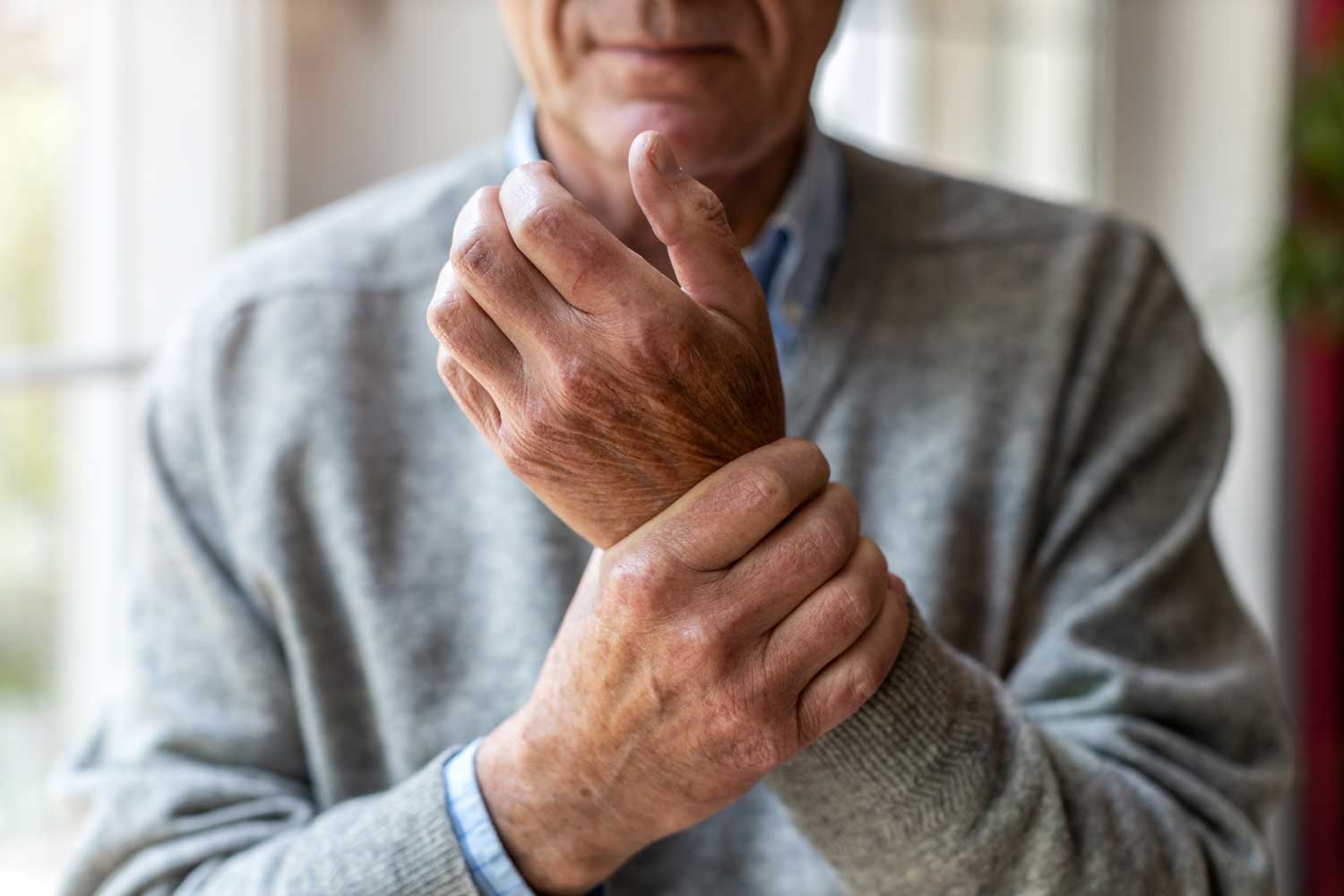
Cannabinoids and Arthritis
WRITTEN BY TRANG TRAN AND DR. SWATHI
Pharmacological treatments of arthritis are often associated with side effects related to infection or immune disturbances. Thus, novel, natural therapies without a risk of infection may be the right choice for some patients.
Despite the limited clinical data on the effect of cannabinoids on arthritis, a significant number of patients have reported using cannabis.
Let’s explore the role of CBD and minor cannabinoids in arthritis.
What are the types of arthritis?
There are two main types of arthritis:
- Rheumatoid arthritis (RA) is a chronic inflammatory autoimmune disease that causes the immune system to attack healthy cells and ultimately results in joint destruction.
- Osteoarthritis (OA) is a degenerative joint disease characterized by progressive cartilage loss which leads to bone damage.
Cannabinoids and rheumatoid arthritis (RA)
Elevated levels of the endocannabinoids N‐arachidonoyl ethanolamine (AEA; anandamide) and 2‐arachidonoylglycerol (2‐AG) has been found in synovial tissues of rheumatoid arthritis (RA) patients but not in patients without RA, suggesting that the endocannabinoid system (ECS) may be a potential therapeutic target for RA treatment by increasing the levels of endogenous cannabinoids or modulating the ECS.
One study showed that Sativex (an oral mucosal spray containing a 1:1 ratio of CBD:THC) may provide pain-relieving effects with mild adverse effects like dizziness in patients with arthritis.
A possible mechanism of CBD is the inhibition of the fatty acid amide hydrolase (FAAH) enzyme, leading to enhanced levels of AEA (an endogenous cannabinoid) and thereby potentially affecting inflammation and pain. Because it is thought that CBD interacts with the serotonin receptors, the combination may cause relaxation which in turn may help support joint pain.
In an animal study, delta-9-tetrahydrocannabinolic acid A (THCA-A), the natural precursor of delta-9-tetrahydrocannabinol (THC), is a non-intoxicating (i.e., does not cause a “high”) cannabinoid that may target peroxisome proliferator-activated receptor gamma (PPARγ) and CB1 receptor signaling pathways, suggesting its potential role in RA.
Because CBD has been reported to work in synergy with chemotherapy drugs such as doxorubicin in tumor cell lines, it might also enhance the effect of anti-rheumatic drugs such as methotrexate or JAK inhibitors. In short, CBD might be beneficial as an adjunct (or add-on) treatment in RA.
Cannabinoids and osteoarthritis (OA)
A study evaluating the safety and efficacy of transdermal synthetic CBD gel administered twice daily in adults with knee pain due to osteoarthritis (OA) demonstrated that after 12 weeks, average worst knee pain scores decreased from baseline, demonstrating the possibility of CBD in OA support.
In a knee arthritis model, cannabigerol (CBG) was shown to potentially have similar effects as dexamethasone, an anti-inflammatory steroidal drug.
What are the safety concerns associated with cannabinoids and arthritis?
Although no serious safety concerns have been associated with moderate doses of CBD, it is important to note that CBD may interact with some prescription drugs and dietary/herbal supplements. Please consult with a healthcare provider knowledge about cannabis as medicine before trying CBD.
The bottom line
Overall cannabinoids interact with the ECS which has been suggested to potentially lower inflammation and reduce the perception of pain related to arthritis. Studies on cannabinoids have demonstrated preliminary evidence in arthritis, indicating its potential use for patients. While current research is promising, more studies are needed to fully understand the therapeutic use of cannabinoids in arthritis.
References
- CBD for arthritis pain: Arthritis foundation. CBD for Arthritis Pain | Arthritis Foundation. https://www.arthritis.org/health-wellness/healthy-living/managing-pain/pain-relief-solutions/cbd-for-arthritis-pain. Accessed March 9, 2022.
- Dunn SL, Wilkinson JM, Crawford A, Le Maitre CL, Bunning RA. Cannabinoids: novel therapies for arthritis?. Future Med Chem. 2012;4(6):713-725. doi:10.4155/fmc.12.20
- Hammell DC, Zhang LP, Ma F, et al. Transdermal cannabidiol reduces inflammation and pain-related behaviors in a rat model of arthritis. Eur J Pain. 2016;20(6):936-948. doi:10.1002/ejp.818
- Hazlegreaves S. CBD for arthritis: What the research shows. Open Access Government. https://www.openaccessgovernment.org/cbd-for-arthritis-what-the-research-shows/120022/. Published December 16, 2021. Accessed March 9, 2022.
- Hunter D, Oldfield G, Tich N, Messenheimer J, Sebree T. Synthetic transdermal cannabidiol for the treatment of knee pain due to osteoarthritis. Osteoarthritis and Cartilage. https://www.oarsijournal.com/article/S1063-4584(18)30167-5/fulltext. Accessed March 9, 2022.
- Kogan NM, Lavi Y, Topping LM, et al. Novel CBG Derivatives Can Reduce Inflammation, Pain and Obesity. Molecules. 2021;26(18):5601. Published 2021 Sep 15. doi:10.3390/molecules26185601
- Lowin T, Schneider M, Pongratz G. Joints for joints: cannabinoids in the treatment of rheumatoid arthritis. Curr Opin Rheumatol. 2019;31(3):271-278. doi:10.1097/BOR.0000000000000590
- Lowin T, Tingting R, Zurmahr J, Classen T, Schneider M, Pongratz G. Cannabidiol (CBD): a killer for inflammatory rheumatoid arthritis synovial fibroblasts. Cell Death Dis. 2020;11(8):714. Published 2020 Sep 1. doi:10.1038/s41419-020-02892-1
- Palomares B, Garrido-Rodriguez M, Gonzalo-Consuegra C, et al. Δ9 -Tetrahydrocannabinolic acid alleviates collagen-induced arthritis: Role of PPARγ and CB1 receptors. Br J Pharmacol. 2020;177(17):4034-4054. doi:10.1111/bph.15155
- Senthelal S. Arthritis. StatPearls [Internet]. https://www.ncbi.nlm.nih.gov/books/NBK518992/. Published February 22, 2022. Accessed March 9, 2022.
--
This article was edited by Dr. Swathi and was written by Element Apothec Scientific Communications Intern, Trang Tran. She is a Doctor of Pharmacy (PharmD) student at Oregon State University and Oregon Health & Science University College of Pharmacy in Portland, Oregon.











